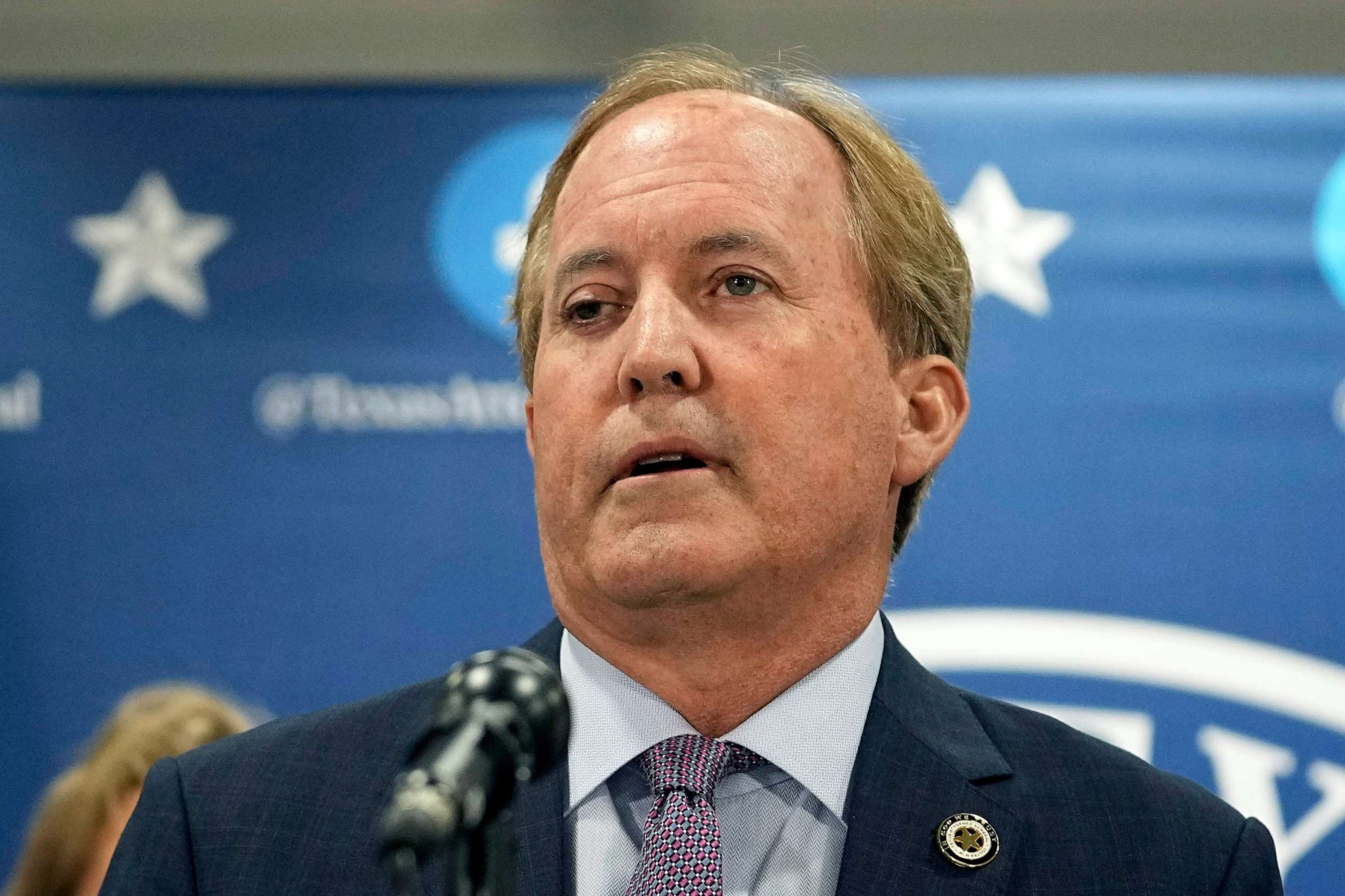Donald Trump is weighing in on a brewing legal battle over whether he should have access to the ballot in 2024.
While he has denied all wrongdoing, a growing number of conservative scholars have raised the constitutional argument that Trump’s efforts to overturn the results of the 2020 election make him ineligible to hold federal office ever again.
Here’s what to know from the campaign trail — from Trump to Alabama to Texas.
Trump dismisses 14th Amendment disqualification push
The former president is pushing back on arguments that Section 3 of the 14th Amendment can be used to remove him from the ballot in 2024.
He claimed in a new social media post, late Monday, that “almost all legal scholars have voiced opinions that the 14th Amendment has no legal basis or standing relative to the upcoming 2024 Presidential Election.”
However, some conservative scholars suggest otherwise, including two members of the conservative Federalist Society; William Baude and Michael Stokes Paulsen and retired conservative federal judge J. Michael Luttig. Harvard Law Professor Emeritus Laurence Tribe joined Luttig in making the case.
That argument boils down to how Trump’s behavior after the 2020 election and surrounding Jan. 6 relates to this section of the 14th Amendment: A public official is not eligible to assume public office if, while they were previously in office, they took an oath to support the Constitution but then “engaged in insurrection or rebellion against the same, or [gave] aid or comfort to the enemies thereof,” unless they are granted amnesty by a two-thirds vote of Congress.
Trump, in his new post, called any such legal challenges invoking the 14th Amendment simply “election interference.”
Similar efforts against other Republicans have failed, but the campaign against Trump under the 14th Amendment has gained steam in a number of states, including the battlegrounds of Arizona, Michigan and New Hampshire.

Former President Donald Trump speaks at Trump National Golf Club in Bedminster, N.J., June 13, 2023.
Andrew Harnik/AP, FILE
Amid historic legal troubles, Trump’s grip on his party still strong in new poll
Until Trump, no president had ever been impeached twice — or criminally charged — let alone four times. He has dismissed all such cases as political persecution and has pleaded not guilty to each of his indictments, in Florida, Georgia, New York and Washington, D.C.
But while ABC News and Ipsos polls showed some problems for Trump in terms of public opinion on his mounting criminal charges amid his comeback bid for the White House — a new CNN poll shows he remains hugely popular with the GOP base who will be choosing their party’s next presidential nominee.
He continues to lead the 2024 Republican field, polling over 30 points ahead of his closest competitor, Florida Gov. Ron DeSantis: 52% to 18%, according to the new CNN survey conducted by SSRS.
Surveyed over Aug. 25-31, the traditional Labor Day start to the campaign cycle, around 43% of GOP-aligned voters said they are definite Trump backers, with 20% saying they are firmly behind another candidate and 37% have no first choice or say they could change their minds.
Paxton goes on trial
Suspended Texas Attorney General Ken Paxton will soon learn his fate as his impeachment trial, expected to last several weeks, began Tuesday morning in the state Capitol in Austin.
The state’s top lawyer, Paxton, who has long fended off other scandals, has been accused of abuse of office by a bipartisan group of Texas House managers.
If found guilty, Paxton, a Republican, will be removed from his office and potentially permanently barred from serving in future public office in his state.
Paxton has denied any wrongdoing and has denounced the impeachment as a “sham.”

Texas Attorney General Ken Paxton makes a statement at his office, May 26, 2023, in Austin, Texas.
Eric Gay/AP, FILE
The trial has potential implications for one of the country’s biggest states, which sits at the heart of the Republican Party but which has, in some recent elections, been trending increasingly Democratic.
“I think that effort to focus or at least see Texas as a possibility operates apart from Paxton’s corruption and the effort to remove him,” Matt Angle, director of the Lone Star Project, a Democratic research and communications political group, told ABC News, “but it certainly helps.”
Court orders new map after Alabama failed to add district for Black voters
A three-judge panel on Tuesday unanimously struck down Alabama’s recently redrawn congressional map, finding that that the GOP-backed plan did not comply with the Voting Rights Act as it did not create a second district in which Black voters would likely be able to elect their preferred candidate.
Court-appointed experts will now draw a new map for the 2024 elections.
Alabama is expected to appeal the decision to the U.S. Supreme Court.
The federal ruling that originally struck down Alabama’s map in 2022 ordered the Legislature to draw “two districts in which Black voters either comprise a voting-age majority or something quite close to it.”
But on Tuesday, the panel wrote that they were “deeply troubled” that Alabama lawmakers enacted a map that disregarded the findings in 2022.
Alabama’s congressional map could sway the odds for control of the U.S. House of Representatives in 2024. Republicans currently hold the chamber by only five seats, but Black voters in Alabama tend to vote for Democrats.
ABC News’ Tal Axelrod and Caroline Curran contributed to this report.

